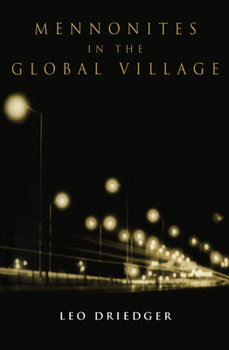Mennonites in the Global Village
Before the 1940s, ninety per cent of Mennonites in North America lived on farms. Fifty years later, less than ten per cent of Mennonites continue to farm and more than a quarter of the population - the largest demographic block - are professionals. Mennonite teenagers are forced to contend with a broader definition of community, as parochial education systems are restructured to compete in a new marketplace. Women are adopting leadership roles alongside men. Many Mennonites have embraced modernity. Leo Driedger explores the impact of professionalism and individualism on Mennonite communities, cultures, families, and religion, particularly in light of the scholarly work of futurists Alvin and Heidi Tofler, which has described the shift from a homogeneous industrial society to a diversified electronic society. Driedger contends that Mennonites are in a unique position in meeting the electronic challenge, having entered modern society relatively recently. He traces trends in Mennonite life by reviewing such issues as the shift from farming to professionalism, the role of mass media, the role of active leadership, and increased social interaction. Menonites face many of the other challenges that religious minorities in North America encounter in the move to modernity, and this study provides in-depth insights into this transition.
Format:Paperback
Language:English
ISBN:0802080448
ISBN13:9780802080448
Release Date:February 2000
Publisher:University of Toronto Press
Length:336 Pages
Weight:0.90 lbs.
Dimensions:2.4" x 4.5" x 7.4"
Grade Range:Postsecondary and higher
Customer Reviews
0 rating





